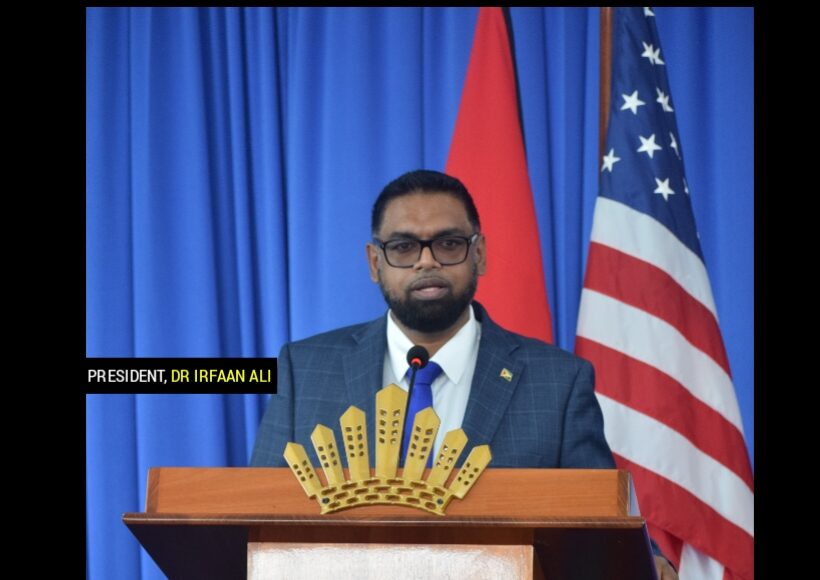In a move toward reparative justice, President Irfaan Ali lauded the apology extended by the descendants of John Gladstone for their family’s historical engagement in African enslavement in Guyana.
In a recent statement, Ali noted that the apology from the Gladstone family serves as a significant milestone in acknowledging the brutalities inflicted during the era of African enslavement and indentureship in Guyana. He said by confronting their family’s past and expressing remorse, the Gladstone descendants have initiated a process of addressing historical injustices.
President Ali also reiterated his recent message for Emancipation Day where he strongly urged those who profited from the trade in captive Africans and the practice of African enslavement to take responsibility by offering reparations. Further, he noted that the Gladstone family’s admission of benefiting from African enslavement and indentureship is a crucial advancement towards achieving this goal.
The legacy of John Gladstone, an absentee owner of plantations in Jamaica and Guyana, is interwoven with defending West Indian plantation owners’ interest he said. Despite his championing of slavery and opposition to abolitionists, his impact on labor practices and the introduction of Indian indentured labor is a testament to his historical influence according to the President.
The call for reparations is firmly grounded in the necessity to rectify the wrongs of the transatlantic slave trade and African enslavement. The Caribbean region, which bore the brunt of this historical injustice, continues to grapple with the enduring impact of slavery on its economic structures and societal fabric.
While acknowledging the importance of the Gladstone family’s apology, President Ali stressed the need for concrete actions aligned with the Caribbean Reparations Committee’s ten-point plan. This plan encompasses education, healthcare, infrastructure, and cultural revitalization and offering a comprehensive approach to addressing the legacy of slavery.
He said, “While acknowledging the historical atrocities of slavery and offering an apology is undeniably significant, it constitutes just the initial step on the path towards achieving comprehensive reparative justice for African enslavement. An acknowledgement and apology serve as a moral reckoning, validating the pain and suffering inflicted on generations past. However, the multifaceted legacy of slavery extends far beyond the confines of historical memory.”
He asserted that it is now up to the descendants of John Gladstone to outline their plan of action in line with the Caricom ten points plan for Reparatory Justice for slavery and indentureship.












Why reparations from the slave owners? The slaves were captured by victorious tribes and sold to the Whites. And top prices were paid – a string of beads, a sliver of mirror, a calabash, etc.
It seems the guilty parties are still in mudda africa.